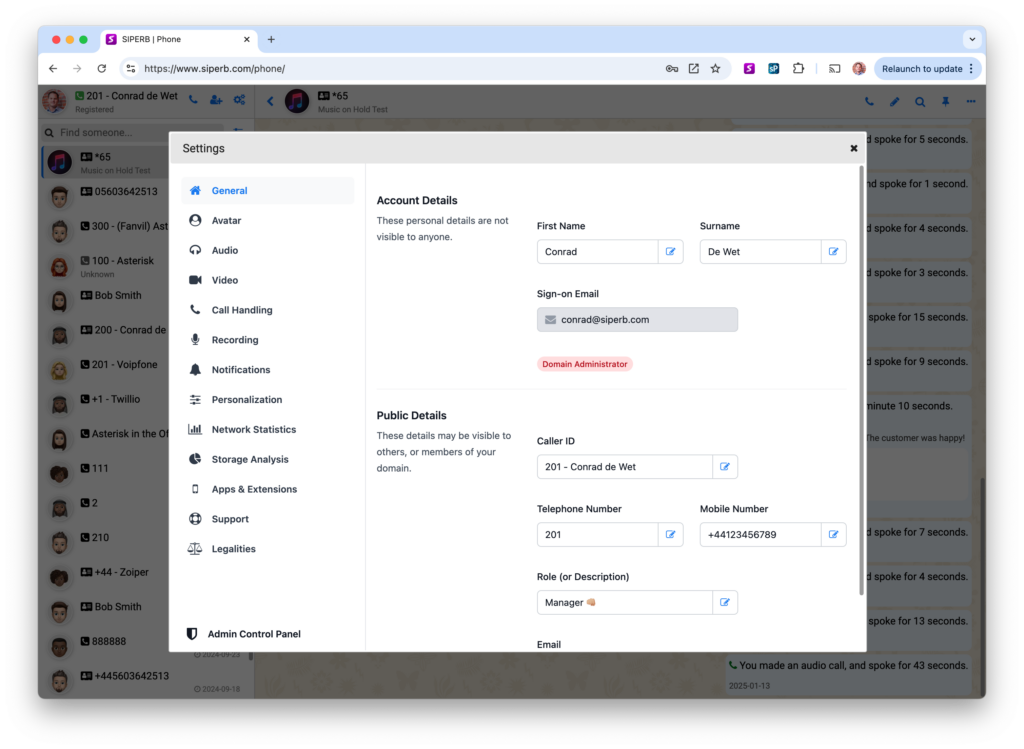SIPERB began as a fork from the original Browser Phone project, a web-based softphone designed to facilitate real-time communication directly from a web browser. As technology and industry demands evolved, so did the need for a more robust, scalable, and cloud-supported solution. Browser Phone is now transforming into a fully supported and cloud-hosted platform under SIPERB, offering unparalleled performance and flexibility in WebRTC communications.
The Browser Phone Project
The original Browser Phone was an open-source initiative focused on integrating WebRTC with SIP-based communication systems. Browser Phone allowed users to make and receive calls from their browsers without requiring additional software or plugins. However, as the project matured, it became clear that a more comprehensive solution was needed to address performance, security, and enterprise scalability challenges.

A Fork with a Vision
SIPERB was created to extend the core functionality of the Browser Phone project while addressing its limitations. The goal was to build a feature-rich, enterprise-ready VoIP solution that could support large-scale deployments while maintaining ease of use. Key areas of focus included:
- Improved Stability & Performance: Optimized WebRTC signaling and media handling for lower latency and higher reliability within Browser Phone.
- Enhanced Security: Implementing stronger encryption and authentication mechanisms for Browser Phone.
- Scalability & Cloud Hosting: A fully managed, cloud-based infrastructure that supports multi-tenant environments under Browser Phone.
- Integration with SIP and PBX Systems: Ensuring Browser Phone remains compatible with existing VoIP infrastructures like Asterisk and FreeSWITCH.
The Evolution into a Fully Supported Cloud Solution
Browser Phone is continuously evolving under SIPERB to provide a comprehensive cloud-hosted VoIP solution. By leveraging modern cloud technologies, Browser Phone ensures high availability, redundancy, and seamless updates. The transition includes:
- Managed Hosting Services: Removing the burden of self-hosting and maintenance for businesses using Browser Phone.
- Scalable Infrastructure: Auto-scaling capabilities to meet varying demands within Browser Phone.
- Advanced Analytics & Monitoring: Real-time insights into call quality, usage statistics, and system health in Browser Phone.
- API-Driven Architecture: Enabling developers to integrate Browser Phone with third-party applications effortlessly.
- Provisioning: Settings and features are provisioned to the Softphone, making deployment simple.

Conclusion
From its origins as an open-source Browser Phone project to its transformation into a fully supported and cloud-hosted solution, Browser Phone under SIPERB is redefining browser-based communication. By focusing on performance, security, and scalability, Browser Phone is positioning itself as a leading solution for businesses and developers seeking a robust WebRTC-powered VoIP platform.

